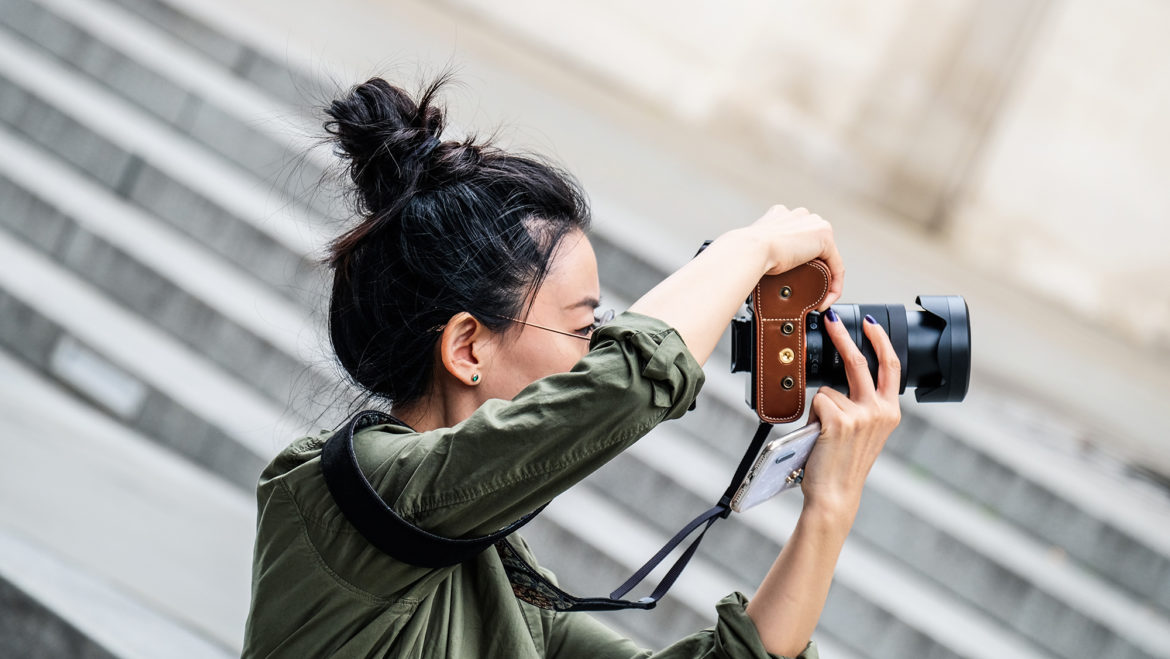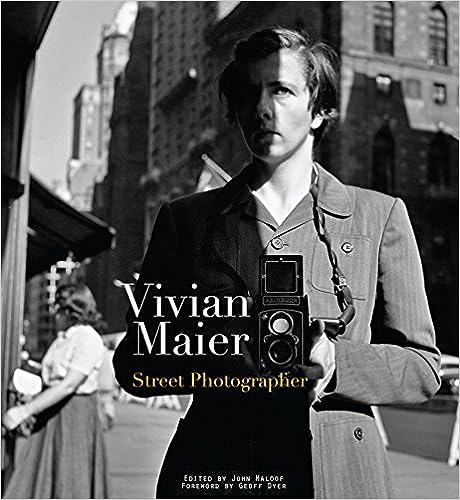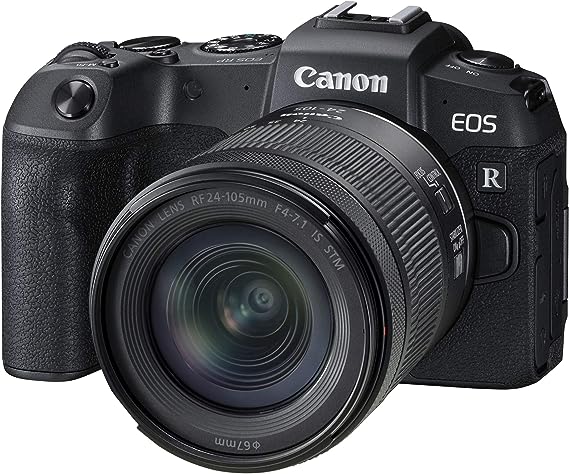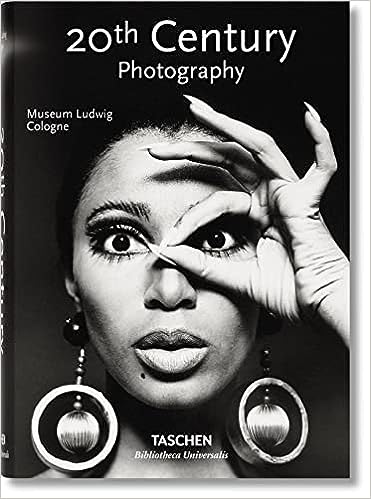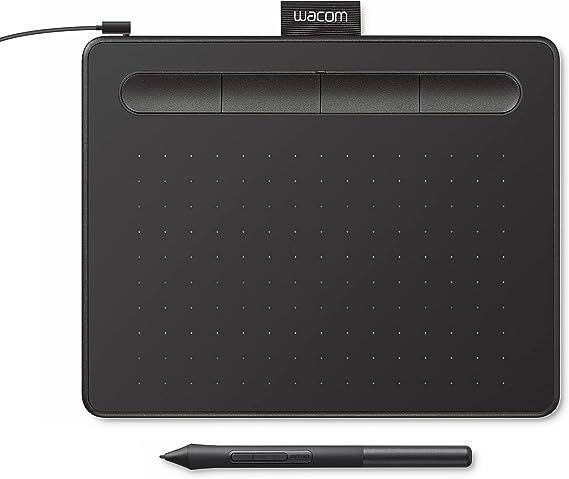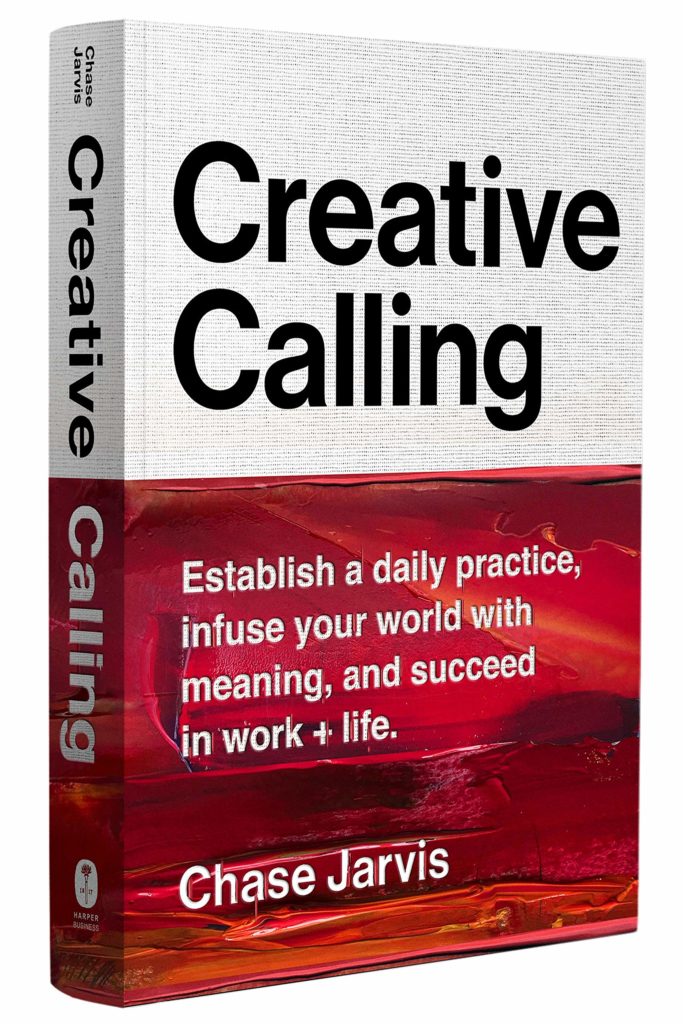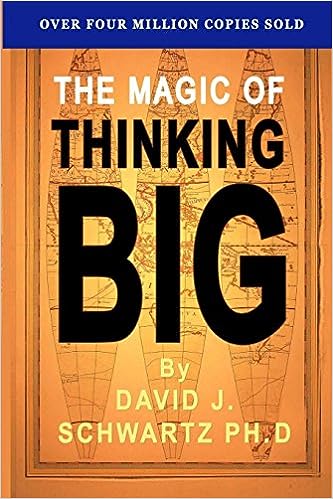Becoming a great photographer is a little different thing for everybody. Because we are all different, photography comes with a wide range of things. But here are some ground rules and tips that will make you a great photographer. If you want to learn photography but don’t want to drop big bucks on being qualified, there are a ton of ways to develop your skills, and easily start working as a freelance photographer. Sometimes, it’s not about practicing harder but practicing smarter.
Follow These Steps and Grow Into a Great Photographer
Find the Light
Light is the most essential part of taking photographs, it is all the photography is. By definition, photography is the process of producing images by the action of light on a sensitive surface, such as a film or an optical sensor. How to utilize light and shadow is the greatest thing we can teach ourselves in photography. If you take this one right, you will be able to take evocative images no matter what camera you have.
The best time of day to shoot is at sunset and sunrise, at the so-called Golden Hour. Another time is Blue Hour, which is just before sunrise or after sunset. The light at that time is soft and flattering. But shooting during the day, when light is hard can produce great images as well. Find beams of light, and reflections, and train your eyes for noticing different light situations. If there is one thing you should nail, this is it.
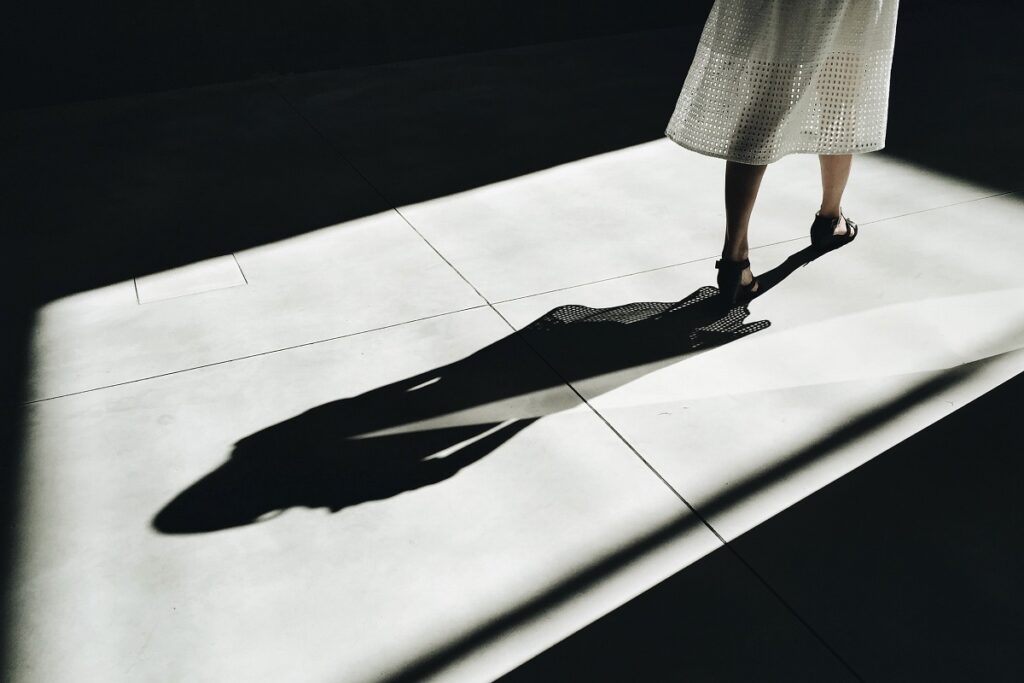
Learn to be Patient
Learn to wait for the right light. Instead of rushing through your shoot, maybe you need to wait just ten minutes until you get the sun correctly behind you, or backlighting your subject. As we said, it’s all about the light. Many times, you will get only a tiny window of opportunity when the light is perfect for your shot, and patience will get you that shot. If you are doing street photography, patience to wait for the right subject will get you the perfect shot.
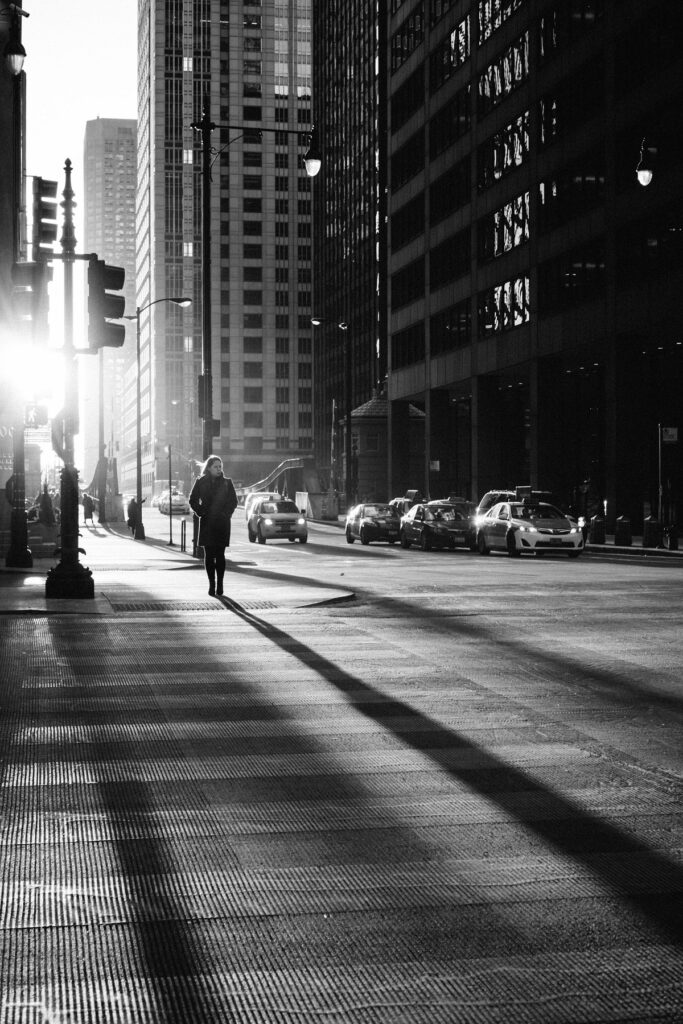
Coffetable book – Vivian Maier: Street Photographer
Get Familiar With Your Camera
Read the manual! Yes, it sounds boring but you will be surprised how much interesting stuff you can learn. And no one knows the camera better than the people who made it. Furthermore, modern cameras often have some neat and helpful features and customization that you don’t know and that you might not discover otherwise. You need to familiarize yourself with that fancy gadget of yours to make the most out of it.
Because, if you are thinking about how to operate your camera while shooting, you are not thinking about pictures. Taking the time to study your gear can save you a lot of time and make the process of photographing more enjoyable. Aperture, shutter speed, ISO, shooting modes, and more all play integral roles in the final result. As you familiarize yourself with these settings, you’ll gain the ability to make real-time adjustments that translate your creative vision into stunning visuals.
Canon EOS RP Mirrorless Full Frame Camera
Apply What You Learned Immediately
APPLY the new techniques instantly after learning them. You can(and some of the times – should) learn photography 24/7 on YouTube and photography sites. But fast results will come only after you apply what you learned. The guiding philosophy is “Go deeper, not wider.” The point is to improve your skills rather than learn new ones. Stockpiling your knowledge will not get you fast results.
Tomorrow is a myth, do the thing you learned right now.
Expose Yourself to Good Photography
Becoming a great photographer involves soaking up awesome photos like a sponge. Think of it as an exciting journey that transforms the way you see things. When you look at fantastic pictures taken by skilled photographers, you start noticing cool details and how they put everything together. It’s like learning a secret language of lights, shadows, and emotions. This experience doesn’t just teach you the technical stuff, but it also helps you tell stories through your pictures. Checking out these awesome photos will light up your creative spark and help you get really good at taking your own amazing shots. It’s like getting a treasure map to a world where every picture you take can be a work of art, telling stories that touch people’s hearts.
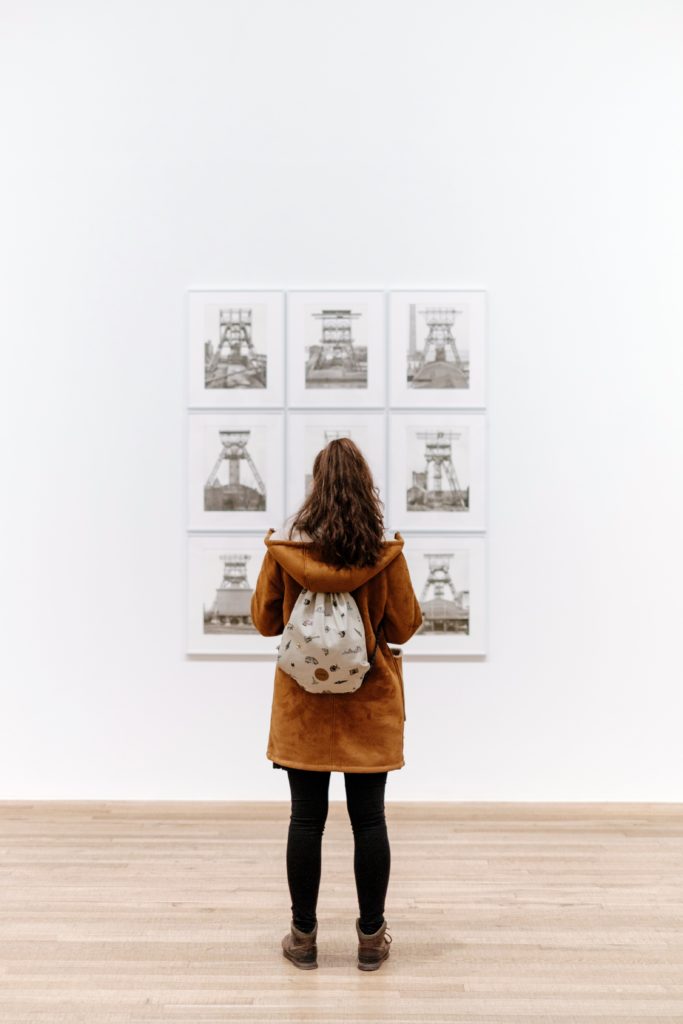
Coffee Table Book – 20th Century Photography
Find a Small Group to Share Your Work – Nurturing Insightful Feedback
In the realm of photography, the road to improvement isn’t solitary; it’s a shared journey. This step encourages you to seek the company of a small, trusted group to exchange your photographic creations. While the internet offers vast exposure, a personal circle provides a nurturing environment for genuine critique. Sharing your work with peers who appreciate your vision and understand the intricacies of your craft can yield a treasure trove of insights. Constructive feedback helps you unravel the nuances of your compositions, lighting, and storytelling, guiding you to refine your skills and enhance your artistic prowess. In this supportive setting, you’ll find your work strengthened by the collective wisdom of your fellow photographers, propelling you toward new heights of creativity and mastery.
Ways to find photography peers
- Local Photography Clubs or Meetups: Check if there are any photography clubs or meetups in your area.
- Online Photography Forums: There are numerous online forums and communities dedicated to photography where photographers from around the world interact. Websites like DPReview, Fred Miranda, and PhotographyTalk have active forums where you can share your work and receive feedback.
- Social Media Groups: Platforms like Facebook and Reddit have photography-focused groups where photographers share their work, ask for feedback, and discuss various aspects of photography.
- Photography Workshops and Classes: If you’ve attended photography workshops or classes, you may have met other enthusiasts with whom you can form a group.
- Local Art Centers or Galleries: Art centers and galleries often host events, exhibitions, and workshops for photographers.
- Ask Within Your Network: Reach out to friends, family, or acquaintances who share an interest in photography.
- Create Your Own Group: If you can’t find an existing group that suits your needs, consider starting your own.
- Photography Classes: If you’re taking photography classes, whether online or in-person, you can connect with classmates who are also looking to improve and share their work.
- Photography Exhibitions and Events: Attend photography exhibitions, gallery openings, and photography-related events in your area.
- Photography Apps: Some photography apps, like Instagram, have communities of photographers who share their work and engage in discussions.
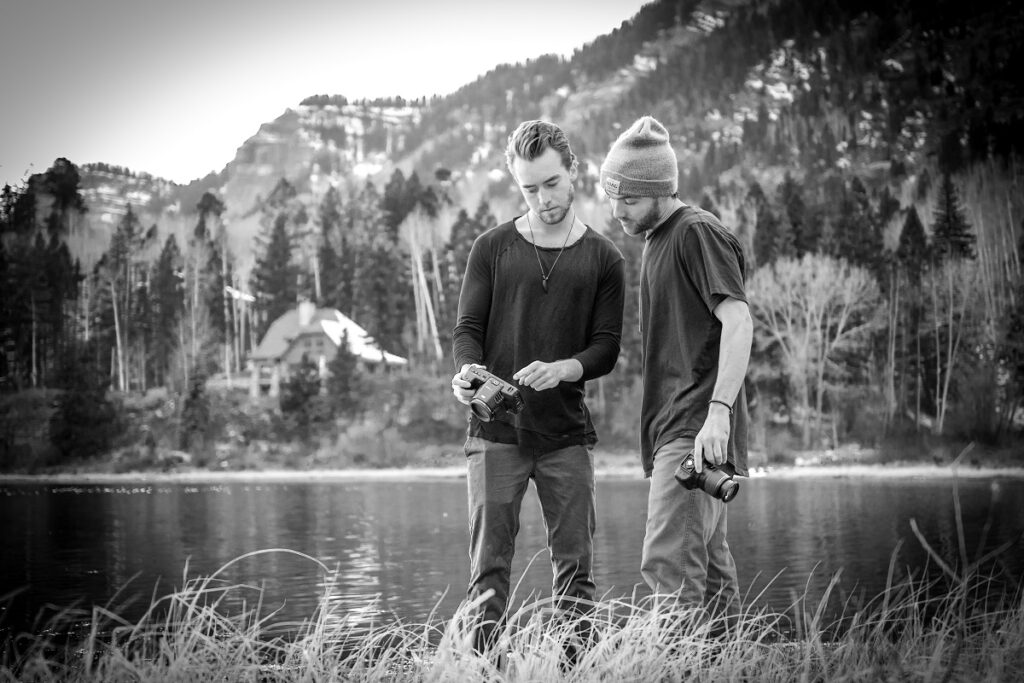
Learn to Carefully Compose Your Shots
Learning to compose your shots effectively takes practice, patience, and a willingness to experiment. Don’t be discouraged by initial results; consider them stepping stones towards your growth into a great photographer. Embrace failures as opportunities to learn and refine your skills.
Each time you raise your camera to your eye, remember that you are not simply capturing an image – you are weaving a visual tapestry that conveys your perspective and emotions. Composition empowers you to tell stories, evoke feelings, and engage your audience on a deeper level. So, the next time you’re out capturing the world through your lens, take a moment to pause, assess your surroundings, and embrace the principles of composition. Your journey as a photographer will be enriched, and your images will captivate and resonate with viewers in ways you never thought possible.
Learn to Edit Your Images – Unleash the Power of Post-Processing
This step delves into the transformative world of editing, where raw captures are molded into captivating masterpieces. Editing isn’t just about correcting flaws; it’s a creative process that lets you infuse your images with your unique vision. Embrace this phase as an essential extension of your photographic journey. While it might appear intimidating, learning to navigate editing software and experimenting with different techniques is a gateway to unlocking your full potential as a great photographer. By mastering the art of post-processing, you can refine your images, amplify emotions, and achieve the desired atmosphere, ultimately elevating your work to new heights of artistic expression.
Wacom Intuos Small Graphics Drawing Tablet
Five places where you can learn more about photo editing:
- Adobe Photoshop and Lightroom Tutorials: Adobe offers a plethora of tutorials, both on their website and on platforms like YouTube, to help you master the various features and techniques these software offer.
- YouTube: Channels like PHLEARN, Piximake, and Anthony Morganti provide step-by-step guides for various editing processes, from basic adjustments to advanced retouching.
- Online Photography Courses: Platforms like Udemy, Coursera, and Skillshare offer comprehensive online courses on photo editing.
- Photography Websites and Blogs: Many photography websites and blogs, such as Fstoppers, PetaPixel, and Digital Photography School, regularly publish articles and tutorials on editing.
- Editing Software Communities: Communities like Adobe Community, Lightroom Queen, and Reddit’s r/postprocessing provide a space to ask questions, share your work, and learn from fellow editors.
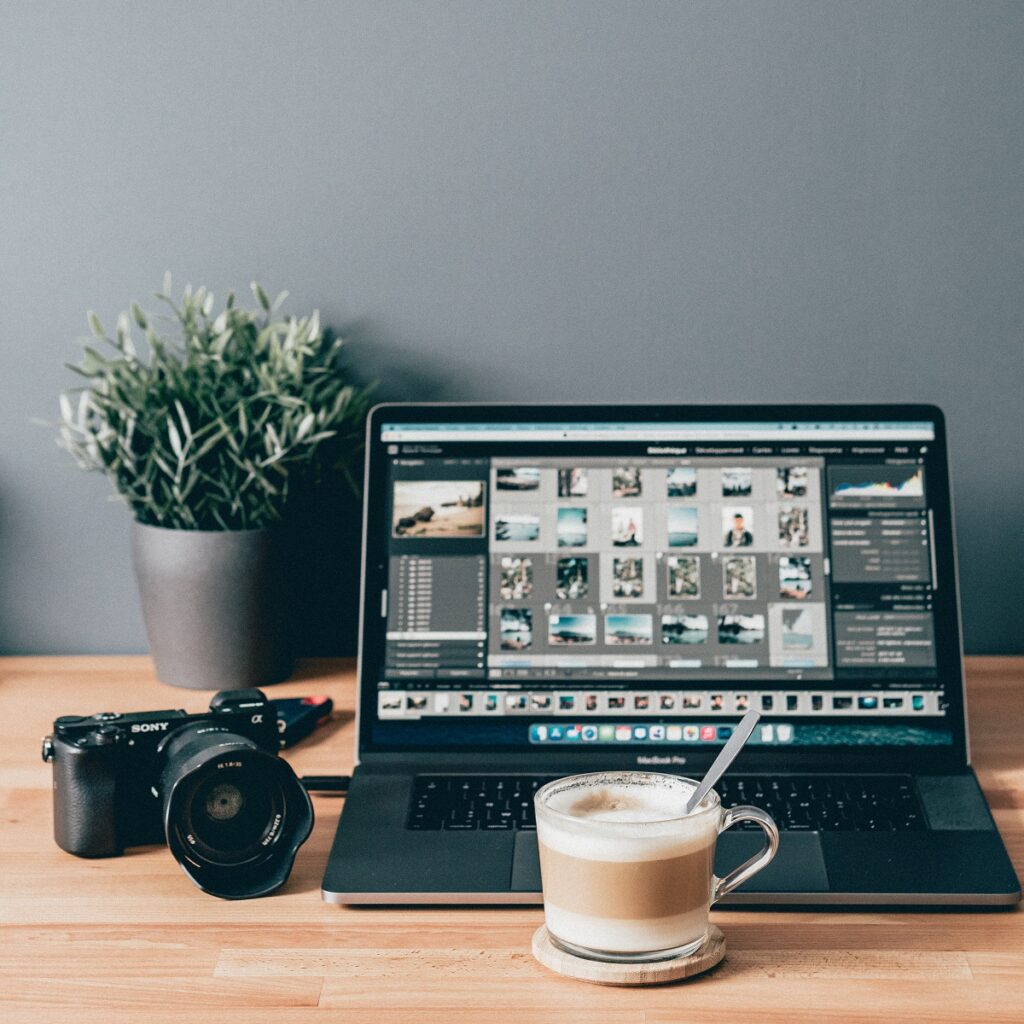
Shoot a Roll of Film
There are a few reasons why you should use a traditional film camera. The first we talked about is restrictions. When you have a limited number of shots to take, you take things much more seriously. You don’t go around and just shoot an endless amount of shots, hoping one will come out good, or that you will fix it in post. It is a much more deliberate practice where you need to put your knowledge and heart into it.
The second is that you don’t have an LCD display to see if you got the shot. Looking through the viewfinder gives you a kind of purity and focus as everything outside the frame is black. It puts you in the world of that photograph. And this one really puts your technical knowledge to the test. You need to nail your exposure settings before you take a shot, instead of tweaking it after you saw the shot you took.
A camera is a tool for learning how to see without a camera
Dorothea Lange
Of course, both of these can be done on your digital camera: Just cover your LCD restrict yourself to 36 shots, and don’t cheat. However, if you have a passion for photography, you will appreciate the experience of working with a film camera. And who knows, maybe you’ll stay to shoot on film. There are outstanding photographers who still shoot on film today.
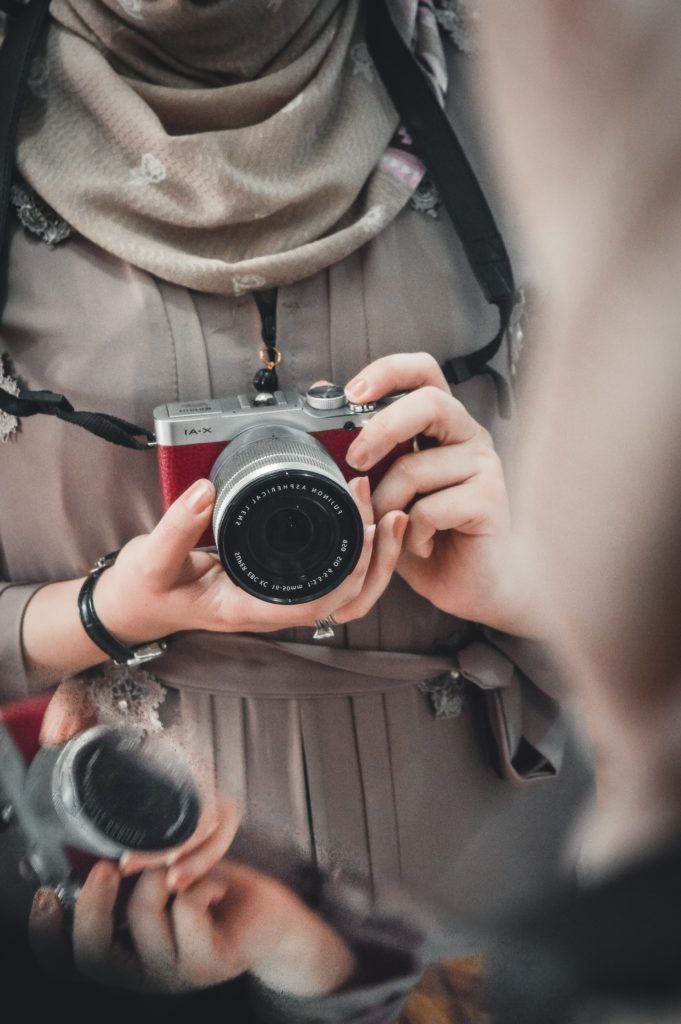
Limit Yourself
Having many options is not always a good thing. On the contrary, putting restrictions on the gear or technique you use is going to make you improve fast. Use a lens that you are not used to, or if you always shoot with a zoom lens, put a prime lens on and keep it for a few weeks. Of course, if you are doing a job for a client, you will want to bring whatever gear you need. But otherwise, playing and seeing what you can do with one lens will push your boundaries. You will become a master of that one piece of gear and learn exactly what you can do with it.
The second thing you can do is put a time limit. Often in photography, time is your friend. That’s why time limit can be a real challenge and make you improvise and think fast.
Shoot only in black and white. When you remove the color element, you will pay much more attention to your composition. Putting limits will promote your creativity, and up your photography game in no time.
Ideas on how you can limit yourself to enhance your photography skills
- Single Lens Challenge: Choose one lens, whether it’s a prime or a zoom lens, and commit to using only that lens for a certain period.
- Time Restriction: Set a strict time limit for each photo session. Challenge yourself to capture a certain number of compelling shots within, let’s say, 15 minutes.
- Monochrome Exploration: Focus solely on black and white photography for a designated period. Without the distraction of color, you’ll pay more attention to lighting, contrast, shapes, and textures.
- Fixed Aperture or Shutter Speed: Select a specific aperture or shutter speed setting and stick with it for a day or even a week.
- Limited Location: Choose a single location, whether it’s a park, a street corner, or even your backyard, and challenge yourself to capture a variety of captivating shots within that confined area.
- Subject Constraints: Focus on a particular subject or theme for a certain period. For example, concentrate solely on capturing reflections, shadows, or patterns.
- Minimalist Approach: Limit the number of elements in your frame. Challenge yourself to create visually striking images with only a few key elements, forcing you to think critically about composition, balance, and visual impact.
- No Post-Processing Challenge: Try shooting without the intention of post-processing your images.
- Fixed Focal Length Challenge: If you have a zoom lens, tape it at a fixed focal length for a while.
- Mobile-Only Challenge: Leave your dedicated camera behind and use only your smartphone for a specific period.
Teach Someone Else Photography
It’s incredible how teaching someone else skills you know, instantly clarifies your mind. When you try to find the why of something, you don’t take things for granted and you understand concepts better. You need to have a complete understanding of the subject to be able to break it down to a beginner. And also to know how to explain it in a few different ways, if they didn’t get it. By doing so, you will also simplify processes for yourself and feel compelled to fill in your knowledge gaps. This method is nothing new, Seneca said nearly 2000 years ago “By teaching, we learn”. So take time to answer questions from people around you interested in photography, and you will benefit from it. Organize photo tours, workshops, online courses…
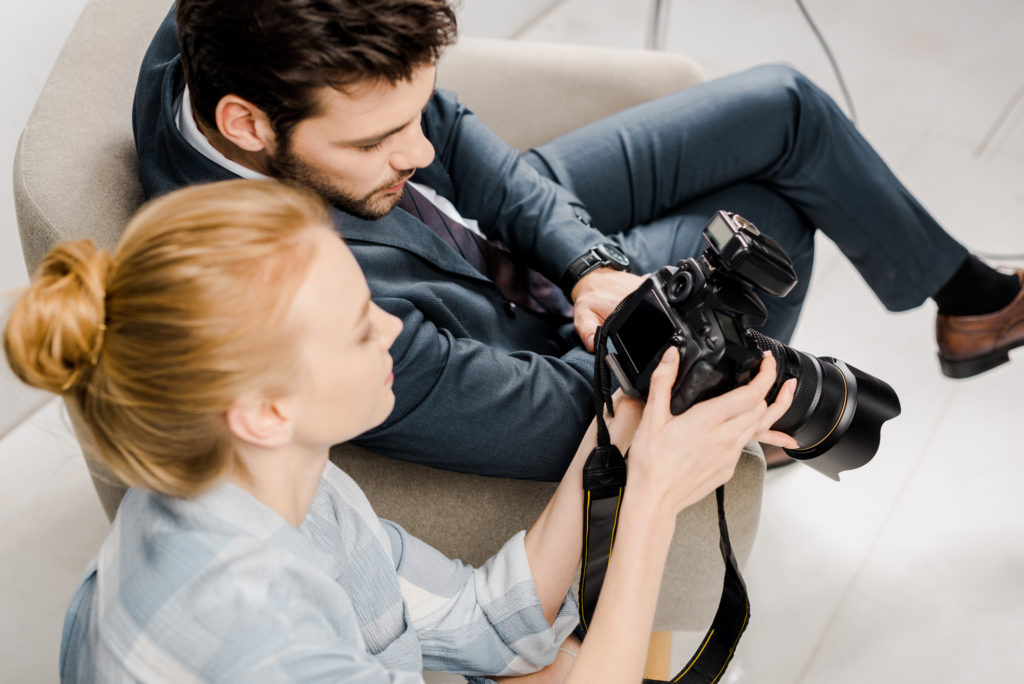
Visual Exercise Without a Camera
Walk the space around you, put your favorite music on, and just watch how the light bounces off the buildings, and how people interact with each other… Imagine how you would compose a picture if you had to take one at that time and place. That kind of photo, light, and life awareness is going to make you a great photographer, and a better artist. It is going to teach you how to see what is around you and it will give you a better starting point when you are doing a shoot with your camera.
I am not interested in seeing new things. I am interested to see things new.
Ernst Haas
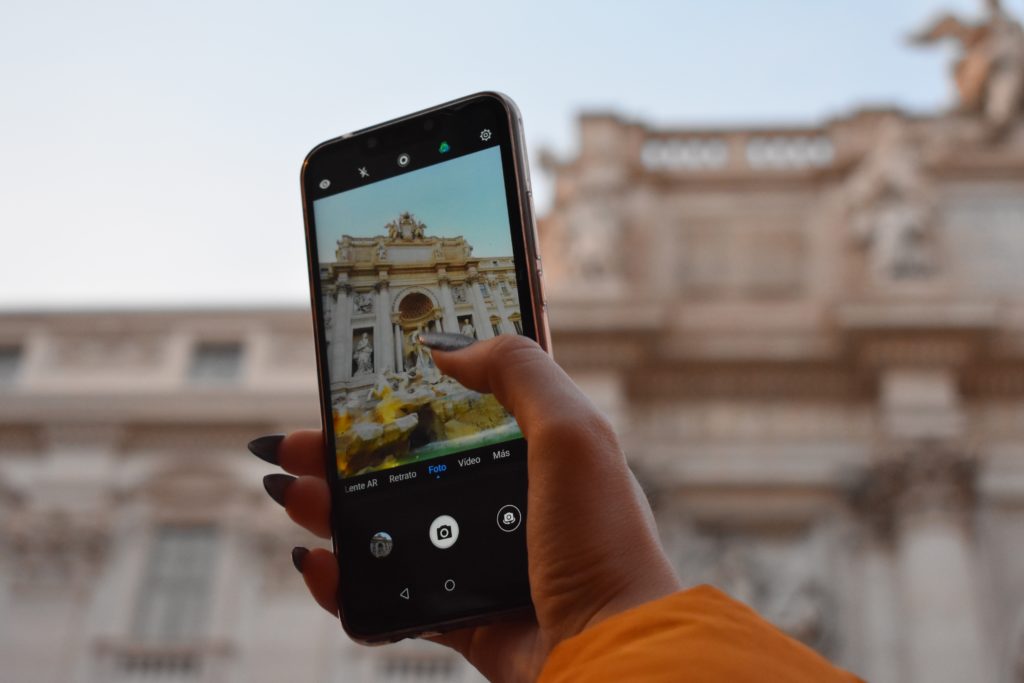
If you let the internet tell you what photography is, you would assume that is just a technical exercise. The technical part is important, but it is just a tool. Because photography at the end of the day is still an art. Allow yourself not to worry about technical stuff always, go for a walk with just your smartphone and experiment. Because art is going to come out of experimentation.
Create a Photography Bucket List
This one is so fun! Make a note on your phone with all the shots you would like to take. Maybe that is an image of your pet, your favorite place, a fine art landscape, a shot of the sky, and the Milky Way… Follow your heart and write it all down. If you are passionate about photography, this will probably be a never-ending list but think of those you must create. Setting this photography bucket list will motivate you to get out and start shooting. Think about what you will need in order to create each of those shots, and check them one by one. There is no better feeling than writing a list of challenges and going through them. Watch this short film from Peter Mckinnon and get inspired to create your own bucket shot.
Look At Your Old Photos
Evaluation is one of the pillars of becoming a great photographer. Most of the time, you import new images in a folder and don’t look at the rest. Take time to browse and study your old images. Besides being a fun activity to do, it is a great reminder of why you started doing photography. Not to mention it can be thrilling to see the progress you made so far and to realize you are improving every single day.
You probably don’t even realize how much you’ve learned about photography. Some techniques that you take for granted today were something you struggled with before or were completely oblivious to. Time gives you perspective. You’ll notice habits, ideas, and technical facets that you tend toward that may well inform your work in the present.
It will let you determine what your strengths and weaknesses are as a photographer. Figuring out what you need to get better at helps focus your learning, and gives you a clear direction for your practice!
Watch Online Tutorials
Thanks to the almighty internet, all tips and tricks are not a secret of the trade anymore. YouTube, in particular, is filled with reviews, tips, and hacks for photographers. Check out popular channels like Mango Street or Peter McKinnon for easy and fun-to-follow videos. And remember to apply it immediately after watching.
Besides YouTube, here are some resourceful and inspiring places where you can learn more.
- Fstoppers – The most visited photography website in the world. They have a vast collection of articles related to photography, lighting, gear reviews, business tips, behind-the-scenes, industry news, and more.
- CreativeLive – CreativeLive brings the world’s greatest experts directly to you. They feature online workshops in photography, video, design, business, audio, music, crafting, and software training.
- Phlearn – Besides photography tutorials, Phlearn is one of the best places to learn Photoshop and Lightroom, which are great tools for creating amazing images.
Motivate Yourself
To approach all these exercises with ambition and passion, you need to know first that this is easily accomplished if you have the motivation. If you lack the motivation to put aside some extra time to learn a new skill, there are so many great books today that can help you see the bigger picture and teach you a few mindset tips on changing your perspective and knowing that all can be accomplished if you put passion into it. One of the non-photography-related books that Pierre Lambert(an engineer who became a professional photographer in less than a year!) recommends is the book called The Magic of Thinking Big. You can also check out a new book by Chase Jarvis(photographer and founder of Creative Live) about the habits that help him succeed in life and career, called Creative Calling.
Really Develop Your Photographic Voice – Your Artistic Signature
As you diligently follow the preceding steps, you’ll find that your style gradually unfolds, reflecting your individual perspective and emotions. Patience is key – like a symphony conductor who lets the music swell and flow, allowing your photographic voice to evolve organically. Embrace each experience, learn from every shot, and let your artistic identity flourish. Just as a painter’s brushstrokes are uniquely theirs, your photographic voice is an irreplaceable expression of who you are. So, embark on this final step with open eyes and an open heart, knowing that as you learn, experiment, and grow, your voice will take shape, enriching your photographic journey in ways that are as beautiful as they are uniquely yours.
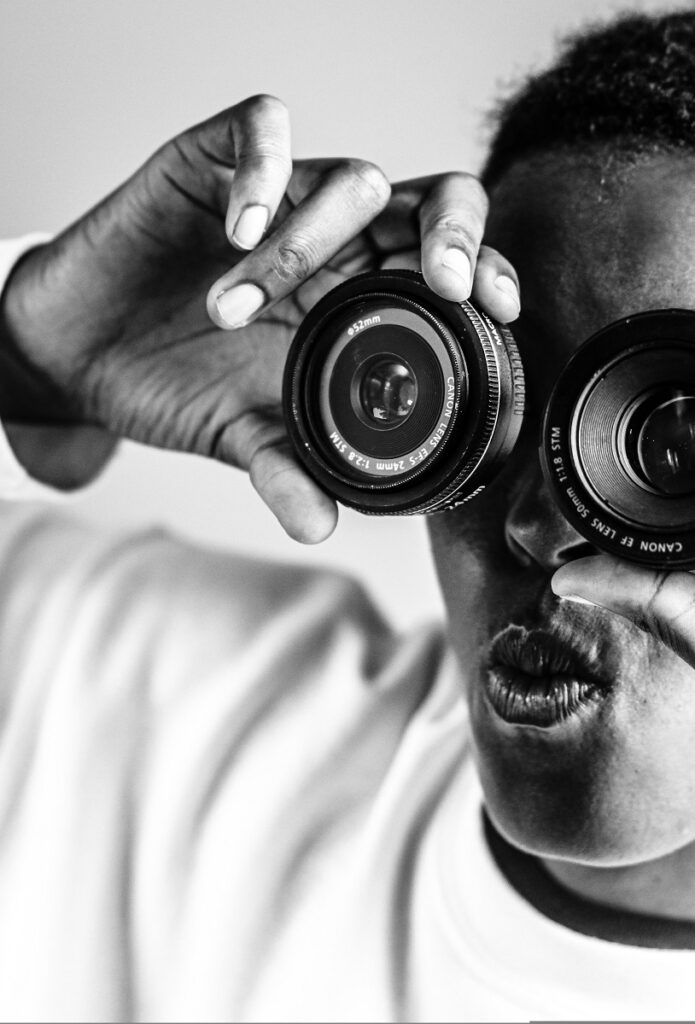
Just do it!
We all want to be better photographers. Sometimes, it takes a break from our normal routines to push us to the next level. In order to improve, the challenge is your best friend. You will come across them one way or another, but if you deliberately make challenges for yourself, the results will come in fast. Another thing to keep in mind is being methodical and thoughtful about the process. Why you shoot something, or why you shoot it that particular way – think about your work. Try these exercises and let us know how they’ve helped you.
Everybody is a rookie at some point. Keep putting in the work, and you will improve, as you probably already improved. Passion, Patience, and Hustle. Use the passion you’ve got and apply it to every photo you take, every book you read, every video you watch, and every program you learn. Photography is art, and the best art comes from a place of passion.
